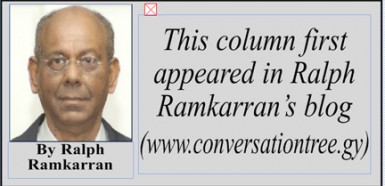Jeremy Corbyn is probably the first person to have won the leadership of the British Labour Party on a campaign that advanced a left agenda. He did so in fine style, with the support of 60 per cent of the membership, to the dismay of the Labour Party establishment. Reports suggest that plotting immediately began among the leadership of the Parliamentary Labour Party (PLP) to remove  Corbyn from the leadership. The majority support for the referendum to leave the EU, provided the occasion on the spurious ground that one-third of Labour supporters voted to leave. There was no evidence to show that any leader could have achieved better results.
Corbyn from the leadership. The majority support for the referendum to leave the EU, provided the occasion on the spurious ground that one-third of Labour supporters voted to leave. There was no evidence to show that any leader could have achieved better results.
The Labour Party establishment, traditionally to the right of the membership, does not believe that Corbyn’s leadership and his full-blooded opposition to neoliberalism, austerity, inequality and tax breaks for the rich, which are being offered by the Tories, are the correct policies or that they will win elections. It always believed that a core policy of the more efficient management of capitalism, not extracting a greater proportion of its profits for the working population, is the route to periodic electoral success. This strategy, adopted by right wing social democracy in the West, is designed to win over some undecided or pro-Tory voters, not to mobilize a left/progressive alliance.
The spectacular failure of this type of policy occurred in the 2000 US elections won by George W Bush. Al Gore’s failure to mobilize all of the liberal/progressive strands in the US, left the opening for Ralph Nader’s Greens who won 2.8 million votes, handing the election to Bush and the Iraq and Afghanistan wars to the world.
The left has always been under-represented in Labour’s PLP (MPs), in relation to its popular strength, while the PLP has been traditionally dominated by careerists on its right wing, rather than activists on its left wing. Consequently, contradictory outcomes emerge, reflected in Jeremy Corbin’s overwhelming popularity among the members who elected him but lack of support in the PLP in which only 40 MPs supported him as against 170 who did not in a no confidence motion held a month ago. With a dagger about to be plunged in his back, the right wing has praised Corbyn’s integrity and humanity. But his performance as leader has been criticized. True, he does not have the aggressive wit, articulatory polish and sartorial elegance of the ‘toffs’, which the right wing in the PLP probably believes he should aspire to, but this may well be part of his overwhelming appeal.
There has always been a struggle, open at times, by the left and right wings of the party for influence. The right has always won this struggle except for 1980, when Michael Foot was elected leader. While Foot was much loved by the left, he was seen as coming from the liberal-progressive, rather than the working class, traditions of British politics, as Corbyn has. Foot’s moderate leftism, not fundamentally at odds with the basic interests of the ruling class, and so recognized, did not prevent the right wing under Roy Jenkins and Shirley Williams from leading a split from the Labour Party and forming the Social Democratic Party in 1981. In the run-up to the 1983 elections Labour led the polls until the Social Democrat-Liberal alliance scuttled a potential Labour victory. With a new lease of life, Margaret Thatcher delivered one of the greatest defeats to the labour movement in the miners’ strike in 1984-5.
Ten years later, shortly after Tony Blair’s election as leader, the simmering war against the left was resumed by him. Even though Clause 4 of the Labour Party Constitution, which mandated the nationalization of the commanding heights of the economy, had survived more as a symbolic gesture than a serious intent, Blair contrived an unnecessary, but ultimately successful, campaign to remove it, merely to inflict a defeat on the left. After that, no one could argue with his consistent electoral success, despite a turn to the right in both economic and foreign policy. This periodic war against the left has resumed once again in the right wing’s attempt at a coup against Corbyn, elected just last September.
The left has argued that its policies have never had a chance to compete electorally with those of the Tories, so that it never had the opportunity to demonstrate the depth of its appeal. The resistance of Corbyn and the left to the coup plotters in the Labour Party might well be seen in the context of the left having been given for the first time in the history of the Labour Party, the opportunity to place its agenda directly to its members and to the electorate. In addition, for the first time, the possibility is opening up of an electoral alliance with Liberals, Greens and other progressive groups.
Already the British press is floating the idea of another split in the Labour Party if Corbyn wins new leadership elections, likely to be held in September. A split will, of course, once again take the Tories off the hook, as was done for Margaret Thatcher, by the same right wing which split the Labour Party in 1983.




